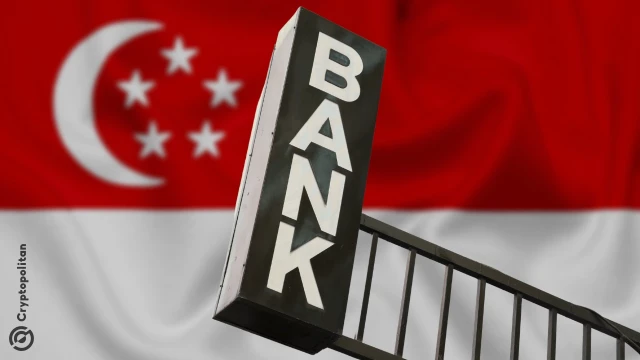
Singapore reveals plans to rein in stablecoin laws and experiment with tokenized bills
Cryptopolitangeneral
Chia Der Jiun, the Managing Director of the Monetary Authority of Singapore (MAS), has announced that his country plans to revamp stablecoin laws and try out tokenized bills.
📋 Article Summary
Singapore's Stablecoin Shakeup: A Pivotal Moment in Crypto Regulation
In a strategic move to stay ahead of the curve, the Monetary Authority of Singapore (MAS) has announced plans to revamp the country's stablecoin regulations and experiment with tokenized bills. This decision reflects Singapore's proactive approach to navigating the rapidly evolving cryptocurrency landscape and signals a significant shift in the global regulatory landscape for digital assets.
Stablecoins, the cryptocurrency equivalent of fiat currencies, have gained immense traction in recent years due to their potential to provide price stability and facilitate mainstream adoption of digital finance. However, the rapid growth of this sector has also raised concerns about systemic risks and the need for robust regulatory frameworks. Singapore's decision to revisit its stablecoin laws underscores the urgency for policymakers to strike a balance between fostering innovation and ensuring financial stability.
The MAS's move to experiment with tokenized bills, a digital representation of traditional fiat currency, is particularly intriguing. This initiative could pave the way for greater integration between traditional finance and the cryptocurrency ecosystem, potentially unlocking new avenues for cross-border payments, increased financial inclusion, and enhanced transaction efficiency. As the world's leading financial hubs race to harness the potential of blockchain technology, Singapore's foray into tokenized bills positions the city-state as a trailblazer in the emerging field of central bank digital currencies (CBDCs).
The implications of these regulatory changes extend far beyond Singapore's borders. Globally, policymakers and financial regulators are closely watching the MAS's actions, as they seek to establish effective frameworks for governing the rapidly evolving crypto asset market. The success or failure of Singapore's initiatives could serve as a blueprint for other nations grappling with the challenges and opportunities presented by stablecoins and tokenized currencies.
Moreover, the impact of these regulatory shifts will be felt across the broader crypto ecosystem. Investors and industry players will closely monitor the new guidelines, as they seek to navigate the shifting regulatory landscape and align their strategies accordingly. Cryptocurrency exchanges, stablecoin issuers, and decentralized finance (DeFi) platforms operating in or targeting the Singaporean market will need to carefully assess the implications of the MAS's actions and adapt their business models to ensure compliance.
As the crypto industry continues to mature, the need for robust and forward-looking regulation has become increasingly apparent. Singapore's decision to reexamine its stablecoin laws and explore tokenized bills underscores the importance of proactive and collaborative policymaking in fostering a sustainable and responsible crypto ecosystem. By striking the right balance between innovation and risk mitigation, Singapore may well emerge as a global trailblazer in the ever-evolving world of digital assets and financial technology.